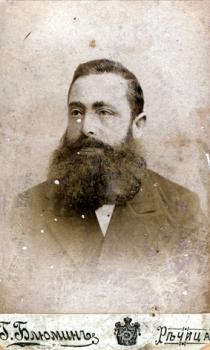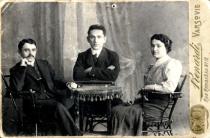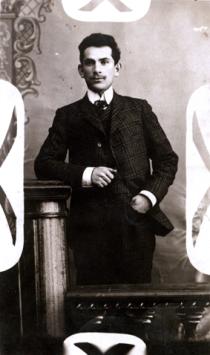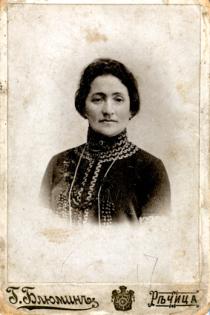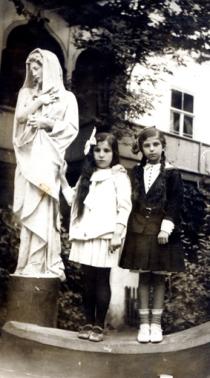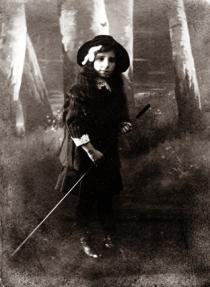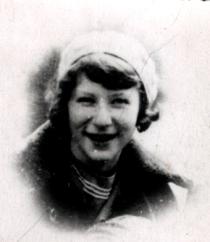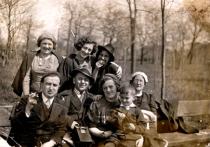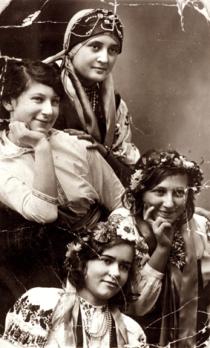My mother, Fanya Leibman (Jewish name - Freida; maiden name - Shenderovich) in Kharkov with her relatives in a photo taken in 1937 in Kharkov. My mother is the woman wearing eyeglasses and a white beret. On the left in the first row is her brother Alexander with his wife Tsilya. Sister Rebecca's children are next to mother.
My mother, Fanya Solomonovna Shenderovich, was born in 1896 in Belarus, in the village of Kholmichi, near Rechitsy. Today it is known as the Gomel region. Her parents had many children.
Her eldest sister was named Rebecca. Her husband's last name was Kagan. She graduated from a college of dentistry. Prior to the Revolution, her husband was a doctor in Kharkov. After the Revolution he held high offices in Kharkov's health care system. They had three children. She died in Kharkov in the early 1950's.
Then there came mother's sister Tsira, whose husband's last name was Israelit. Tsira was a teacher in Leningrad. She died in the early 1950's. Then came mother's brother Alexander, who was born in 1897. Prior to the Revolution he finished studies at a vocational school and worked in the supply system. He died in 1952 in Donetsk (Stalino). The youngest brother was named Srul. He was very ill with tuberculosis of the bones. As far as I remember, he never worked, but was constantly ill. He died in the evacuation in 1942. My mother also had a sister named Polina who later emigrated to Switzerland.
After finishing gymnasium (secondary school) during WW I, my mother worked in a hospital. Then she gained admission to the University medical school, but did not complete her studies. She was already in Kiev, but I don't know how they got to Kiev. I know she married in Kiev, gave birth to me and had complications - hearing problems. So after that she no longer studied or worked outside the home, but was a housewife.
In the 1930's I remember that some people were arrested, including my maternal uncle, Alexander Shenderovich, born in 1897, who was arrested as a White Guard officer. I don't know exactly whether he really was in the White Army, maybe during the Civil War. I don't know why, but when my aunt was allowed to visit him in prison, she took me with her. I remember how he was led out to us and we could visit with him. Soon afterwards he was released and I remember how he came home with a tiny bag.
My mother and her two brothers left Kiev for Kharkov, but they went on a raft across Dneper and got to Dnepropetrovsk. There was my uncle's organization, which was evacuating some cranes, metal constructions, etc. They all were put on an open platform and sent to Sverdlovsk. It happened so that they were passing by Kharkov, and they asked somebody to go and get me. So, I joined them and we went to Sverdlovsk together. The journey took us twenty days. We were in a tall, roofless train car. There were a lot of metal constructions on the floor, and a tent stood upon them. That's where we stayed. My uncle had a paper that said that we were in charge of the cargo. That's how my mother and I were reunited.

